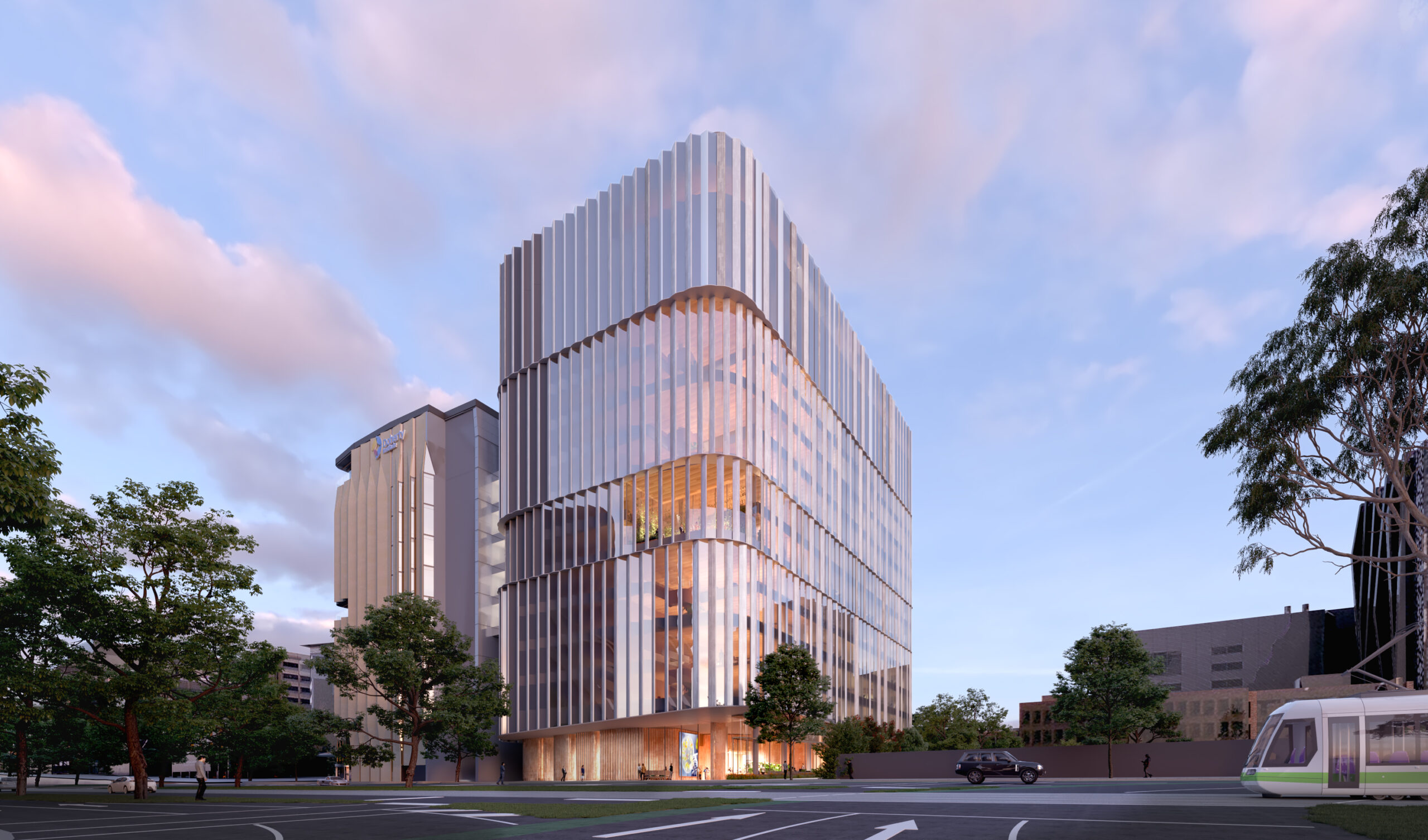The Australian Institute for Infectious Disease (AIID) is one step closer to having a world-class home as its leaders joined with the Victorian Premier and Minister for Medical Research to unveil the building design and location on 20 June.
The AIID building has been specifically designed to foster collaboration and innovation between the AIID Foundation Partners and an alliance of Victorian infectious disease organisations.
A gallery of internal and external building images can be found on the facility page of the AIID website.
The building has been designed by leading Australian architectural firm Wardle and engineered by international engineering firm Aurecon. Foundation Partner staff members will have the chance to learn more about the building design directly from the architects at an online event on 30 June.
Also announced was the location of the AIID’s new home – occupying the area of 766–780 Elizabeth Street and 213–223 Berkely Street in the Melbourne Biomedical Precinct and physically connecting to the Doherty Institute across multiple storeys.
The new building will allow the University of Melbourne and the Doherty Institute to expand and Burnet Institute to relocate its headquarters.
The AIID will focus on genomics, diagnostics, therapeutics, vaccine research, clinical trials and data and public health research to inform decision making.
These focus areas will be supported and enabled by high-tech facilities within the new building, including:
University of Melbourne Vice Chancellor Professor Duncan Maskell said the announcement is a significant step forward in the AIID’s development.
“We are thrilled to reveal the plans for the new AIID building. It will be an iconic addition to the world-leading Melbourne Biomedical Precinct and will equip us with the facilities and resources we need to get ahead of the next pandemic.”
Doherty Institute Director Professor Sharon Lewin said the unveiling of the concept design will see the AIID project gain momentum and will inspire people who will be working in the facility.
“The AIID will allow for expansion of activities across all aspects of the Doherty Institute’s work, as well as strengthen partnerships with Foundation Partners to tackle the challenges in infectious diseases now and into the future.”
Burnet Institute Deputy Director Professor Margaret Hellard said this is an exciting phase in the project, bringing to life the vision of a new state-of-the-art facility and the new home for Burnet Institute.
“The relocation of Burnet Institute to the Melbourne Biomedical Precinct as a Foundation Partner of the AIID is an exciting opportunity that will strengthen collaborations across laboratory-based research and public and global health, and build our capacity to respond to significant global health challenges.”
